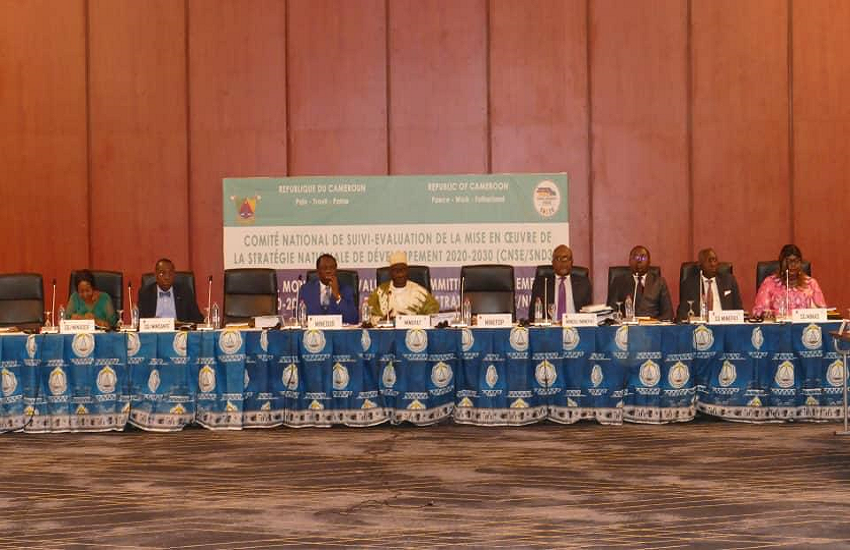This is what obtained from deliberations of the second working session of the 2020-2030 National Development Strategy Follow-up and Evaluation Committee (CNSE/SND30) on 14 February 2023.
The second working session of the CNSE/SND30 aimed to examine progress made, possible challenges and subsequent measures to consider in view of maintaining stamina towards achieving emergence by 2035. Alamine OUSMANE MEY, the Minister of the Economy, Planning and Regional Development in his opening remarks stated that this is a meeting of capital importance with strategic and operational stakes, in line with the development vision driven by the Head of State, His Excellency Paul Biya, whose ambition is to make Cameroon an emerging country, democratic and united in its diversity. From the onset, it was clearly stated that resilience by the Cameroonian economy made it possible to keep progressing, although not at the desired pace. In 2022, there was a slight increase in the growth rate, that moved from 3.6 % in 2021 to 3.8 % in 2022. Budgetary consolidation continued, and inflation was contained. On the social front, access to basic social services has been improved, thanks to investments in infrastructure and direct and indirect subsidies granted by the State. The densification of the health map, the remarkable increase in technical facilities and the introduction of universal health coverage are undeniable achievements. The densification of the teaching offer and use of digital tools is equally to be commended. Rates of registration to and graduation from primary school have also risen, standing at 71 % to 75 % respectively in 2021. Populations’ access to potable water and electricity improved. The share of people having access to drinking water increased from 61% in 2014 to 68.9 % in 2021. In addition, 69% households will have access to electricity by 2021. In terms of governance, the acceleration of the decentralisation process, notably through the adoption and promulgation of the General Code of Local and Regional Authorities (CTD) and the advent of Regional Councils are notable strides. The continuation of the modernisation of public finance management is concomitant with the fight against corruption and the promotion of bilingualism as an instrument of integration and social cohesion. In view to enhance inclusion, the reconstruction programmes for regions affected by security crises are operational. As for improving the business environment, dialogue within the Government during the Cameron Business Forum and other consultation forums continues to be operational.
Furthermore, the Government has continued its efforts in the area of developing production infrastructure (energy, ICT, transport), particularly those undertaken over the last decade. Electricity production capacity was thus moved to 1720mw. The installed drinking water production capacity is 656,089 m3 and the implementation of road projects has resulted in a total 121,489.67 km roads at national level, including 98.5 km of highways. These results were achieved in a difficult and extremely volatile context, Alamine Ousmane Mey acknowledged. Following a period of global recession in 2020 due to the COVID 19 pandemic, the fragile recovery achieved at the cost of numerous budgetary efforts is now suffering the adverse effects of the crisis between Russia and Ukraine. However, although efforts in implementing the NDS30 indicate remarkable progress, the vast industrial project launched in view of emergence calls for putting in more efforts, said the Minister of the Economy. This will require reinforcing the strategic planning and prioritisation dimension in the rigorous and disciplined implementation of chosen public policies. This approach will also ensure the appropriate allocation of financial resources. The idea of wealth creation driven by the private sector also implies use of alternative financing mechanisms that integrate public-private partnerships, private investment, the diaspora, crowdfunding, climate finance, etc. The global context and situation also call for a shift towards endogenous economic models that are robust and resilient to exogenous shocks. Finally, it seems more necessary than ever to take into account the issue of climate change. It is only on this condition that we shall safeguard our achievements and remove all obstacles to implementation of the NDS-30, as well as pursuing our march towards achieving emergence by 2035.



